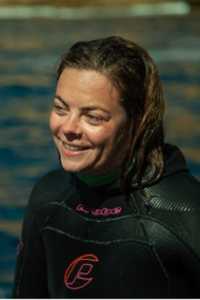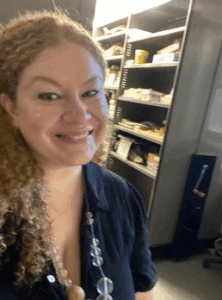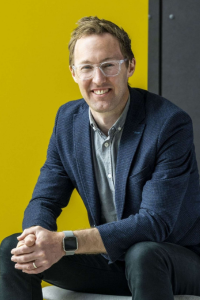Flinders University has achieved a strong result in the latest ARC Discovery Early Career Researcher Award (DECRA) round, securing seven projects worth $3.67 million for funding in 2026.
With a 25.9% success rate, Flinders has outperformed the national average of 13.1%, with seven the highest number of DECRA awards Flinders has ever received in a single round.
With projects including soil and reef health, renewable energy and uncovering early trade systems to student wellbeing and correctional rehabilitation, Deputy Vice-Chancellor (Research) Professor Raymond Chan says this latest round of DECRA funding is a fantastic outcome for all involved.
"I extend my congratulations to all our DECRA recipients and their collaborators," says Professor Chan. "These awards recognise the depth of talent at Flinders and the potential of our early career researchers to carry forward Flinders' ethos of research for purpose.
"DECRA projects are about fostering innovation and collaboration, while strengthening Australia's research capability. The diversity of topics funded this year shows how Flinders researchers are pushing boundaries to create solutions and drive progress for Australia and beyond."
The funded projects are:

Dr Craig Liddicoat, College of Science and Engineering, $530,079
Unearthing the critical roles of microbiomes in soil health
This project aims to uncover the essential roles that soil microbiomes play in maintaining soil health and fertility. By integrating advanced genomic techniques with ecological modeling, the research will identify key microbial interactions that influence nutrient cycling and plant productivity. Expected outcomes include new insights into soil ecosystem resilience and practical strategies for improving agricultural sustainability. Benefits include enhanced food security and better soil management practices to mitigate climate change impacts.

Dr Matthew Evans, College of Science and Engineering, $530,079
Molecular Bismuth Catalysts in Hydrogen Evolution Reactions
This project aims to develop novel molecular bismuth catalysts for hydrogen evolution reactions, a critical process in renewable energy technologies. By exploring the unique properties of bismuth-based compounds, the research seeks to improve catalytic efficiency and stability under operational conditions. Expected outcomes include new knowledge in catalyst design and potential breakthroughs in hydrogen production for clean energy applications. Benefits include advancing Australia's position in sustainable energy innovation and reducing reliance on fossil fuels.

Dr Georgina Wood, College of Science and Engineering, $529,912
Future-proofing Australia's Great Southern Reef
This project aims to safeguard the Great Southern Reef against climate change and other environmental pressures. Using cutting-edge ecological and genomic tools, the research will assess reef resilience and identify strategies to enhance its adaptive capacity. Expected outcomes include improved understanding of reef biodiversity and actionable conservation measures. Benefits include protecting marine ecosystems vital to fisheries, tourism, and coastal communities, ensuring long-term ecological and economic sustainability.

Dr Mirani Litster, College of Humanities, Arts and Social Sciences, $529,735
The first global currency: tracing early Indian Ocean cowrie shell networks
This project investigates the historical role of cowrie shells as a form of currency in the Indian Ocean trade networks. Through archaeological evidence and historical analysis, the research will trace the origins, spread, and socio-economic impact of cowrie shell exchange. Expected outcomes include a deeper understanding of early global trade systems and cultural interactions. Benefits include enriching world history narratives and informing contemporary discussions on globalization and economic exchange.

Dr Melissa de Vel-Palumbo, College of Business, Government and Law, $526,828
Co-Designing and Testing a New Framework for Correctional Supervision
This project aims to develop and evaluate a new framework for correctional supervision that prioritizes rehabilitation and community safety. Using participatory design methods, the research will involve stakeholders in creating evidence-based practices for offender management. Expected outcomes include improved correctional strategies and reduced recidivism rates. Benefits include enhancing justice system effectiveness and promoting social reintegration of offenders.

Dr Jake Robinson, College of Science and Engineering, $515,079
Bad Vibrations: Understanding how noise pollution affects soil health
This project explores the impact of anthropogenic noise on soil ecosystems and their microbial communities. By combining field experiments with molecular analyses, the research will dete
rmine how noise disrupts soil processes critical for plant growth and carbon cycling. Expected outcomes include new insights into an overlooked environmental stressor and its ecological consequences. Benefits include informing land-use policies and mitigating noise pollution effects on terrestrial ecosystems.

Dr Ben Lohmeyer, College of Education, Psychology and Social Work, $511,166
Schools as lonely spaces: Loneliness and undesirable social connections
This project investigates the prevalence and causes of loneliness among students in school environments. Using mixed-method approaches, the research will examine how social structures and peer dynamics contribute to feelings of isolation. Expected outcomes include strategies to foster positive social connections and reduce loneliness in educational settings. Benefits include improving student well-being and academic performance through better social support systems.
In this latest round, the Australian Research Council (ARC) awarded $102.7 million to support 200 new Discovery Early Career Researcher Award (DECRA) projects.
The ARC's DECRA projects are designed to foster collaboration with national and international collaborators to address critical knowledge gaps and deliver solutions that address economic, environmental, social, and cultural challenges to improve quality of life and driving sustainable progress for all Australians.






